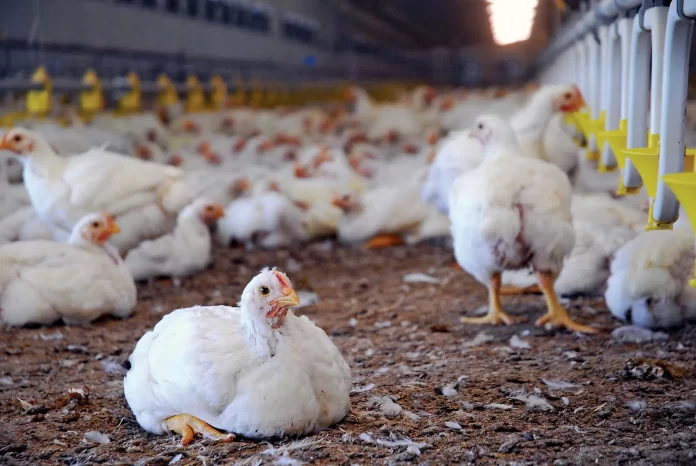On a scandalous note, our country’s corporate poultry industry is facing a very difficult time especially that the nation as in other countries is facing downtime in its economy. However, we are informed that poultry handlers can stay afloat in spite of the odds. They may nit make absolute profit but not enjoying some marginal income.
Our concern on the sub-sector is not based on the need to fuel any personal economic interest for AljazirahNigeria but based on a nationalistic interest to enhance the industry and indeed the nation’s common good.
Nigeria’s poultry industry is recognised as the most commercialised component of the livestock subsector, contributing over 25% of the agricultural GDP.
Confirmed reports have it that approximately 25 million direct jobs are threatened in Nigeria’s poultry sector due to the high cost of poultry feed, which is now driving farmers out of business. Despite the Federal Government’s waivers for maize importation, the production cost for chicken feed remains prohibitively high, threatening a further collapse of the industry. Maize is a primary ingredient in feed production for birds.
In 2023, the Poultry Association of Nigeria ,PAN, raised the alarm that the soaring cost of maize was forcing farmers to shut their farms due to their inability to feed their birds and sustain their businesses. Given the current market realities, it has been reported that more poultry farms have now closed as a result of a lack of market stability.
Onallo Akpa, the Director-General of the Poultry Association of Nigeria, warned that should the industry collapse, Nigeria risks losing over 25 million jobs and billions of naira in the value chain. Stakeholders have predicted that the number of jobs lost could be even higher, particularly given the frequent increases in fuel prices.
However, poultry farmers have expressed dissatisfaction with the current importation system, alleging that only a select few individuals are granted licences, and that these importers prioritise their profits over the needs of the farmers. Under pressure from escalating feed costs, farmers have requested that the government issue them direct licences to import maize, in order to alleviate the rising production costs faced by their members.
In one allegation, one stakeholder noted that: “licences for maize importation are given to a select few, who import for selfish gains. Even when they sell to poultry farmers and feed processors, they offer the same prices as the open market”.
Meanwhile, there reports that the sector had received assistance through the importation of about 100,000 metric tonnes to alleviate the market’s maize scarcity. Additionally, maize was among the grains recently granted a zero tax waiver on importation by the federal government.
However, despite these interventions, the prices of chicken and chicken products have noticeably increased over the past two years. Current market prices indicate that a crate of eggs sells for between N5,000 and N6,000, while individual eggs, depending on their size, cost between N150 and N200.
Similarly, chicken feed prices have surged beyond expectations, ranging from N19,000 to N25,000 per 25kg. The price of Growers Mash (Hybrid Brand) has risen from N5,000 to N8,000. These prices are likely to persist beyond now given the volatility of our price vulnerability.
We are calling on the government to make frantic efforts to sustain this very indispensable sector. The PAN must sustain its call on the government to grant necessary waivers that can push their efforts beyond rhetoric.
We insist that our local poultry industry is too primitive and unsustainable to handle the nation’s need. Industrial poultry and its value chain have a tremendous capacity to swell our total economy to a reasonable proportion.





